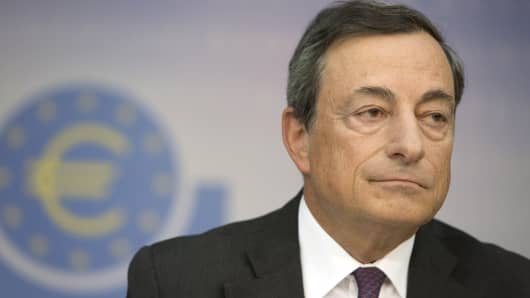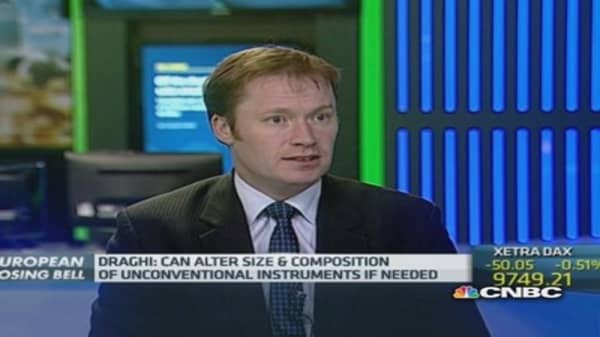If there was huge confidence in the ECB's ability to deliver the right kind of economic stimulus, why would slightly weaker data deliver this reaction in the bond markets?
Of course, the ECB cannot do everything, and the market reaction is partly because of increasing lack of confidence in politicians' ability to deliver the fiscal and structural policies which would reduce the need for asset purchases.
Yet there are also valid concerns about the disconnect between the amount of cheap money pumped into the European banking system, and the take-up by the real economy. Loans to non-financial borrowers are still slowly reducing, as deposits rise, and this appears increasingly to be down to lack of demand. If businesses are feeling confident, why are they not borrowing to fund their future expansion?
Read MorePolitical reticence blunts ECB's asset purchase plan
And if the ECB, as expected, plans to buy top-quality asset-backed securities and covered bonds, this may reduce the amount of the best-quality assets held by banks, just as the crucial asset-quality review focuses attention on who is holding the least-secure assets.
There is also the question of whether the ECB will find enough assets in this round to meet the targeted 1-trillion-euro ($1.3 trillion) growth of its balance sheet. With a worse-than-expected take-up of its latest cheap loan program, dubbed TLTRO, it may be forced to expand beyond the private-sector remit faster than planned.
Follow us on Twitter: @CNBCWorld





